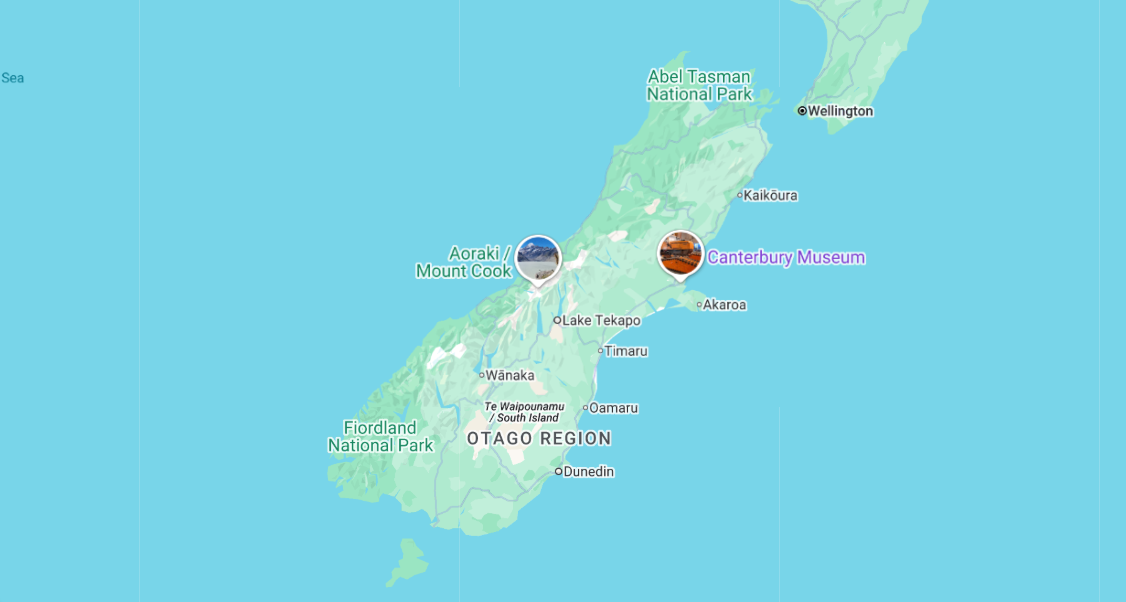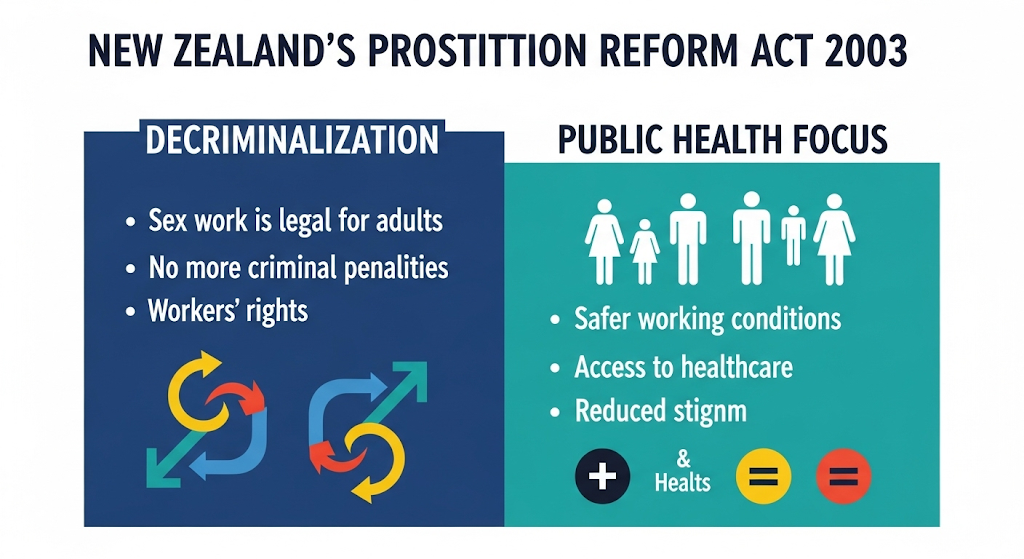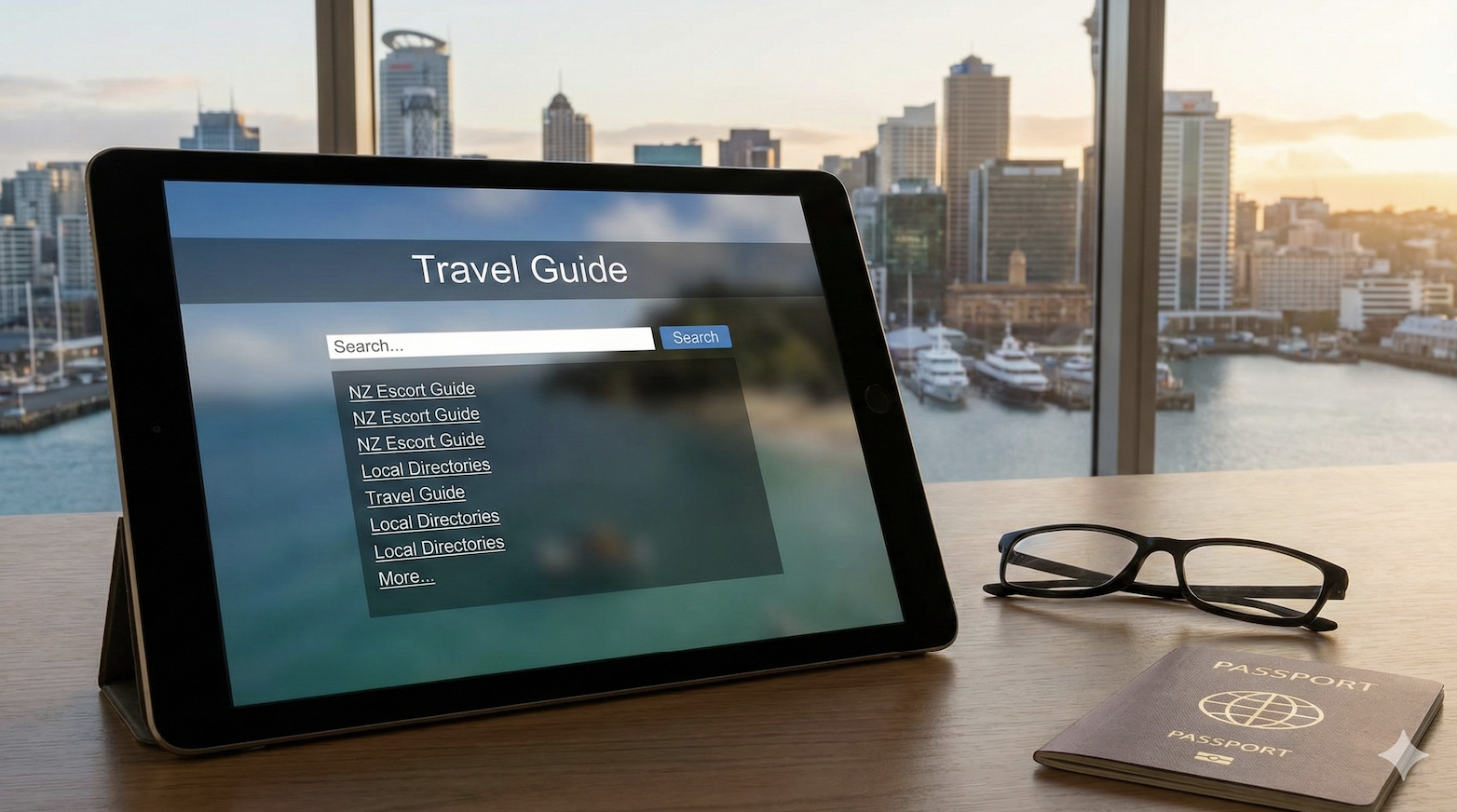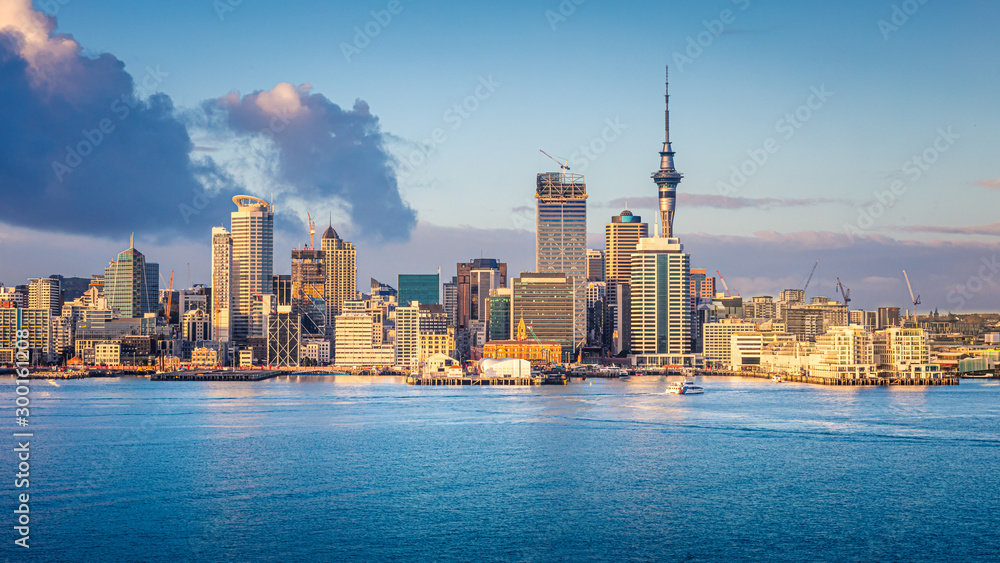
Executive Summary
New Zealand is globally recognized for its unique approach to the decriminalization of sex work, established by the Prostitution Reform Act 2003 (PRA). This legislative framework prioritizes the human rights, health, and safety of sex workers, aiming to reduce exploitation and stigmatization. For visitors to the South Island, understanding this progressive legal context is crucial for responsible engagement.
Key centers for escort services in the South Island include Christchurch, Queenstown, Dunedin, Nelson, and Invercargill, offering a variety of service types. Adherence to legal requirements, particularly regarding age and visa status, and strict enforcement of safer sex practices, are non-negotiable. Respectful interaction, clear communication, and an awareness of local and Māori cultural etiquette are paramount for a safe and positive experience for all parties involved. Resources like the New Zealand Prostitutes' Collective (NZPC) provide vital support and information within this regulated environment.
New Zealand's decriminalization model represents a significant departure from traditional criminalization approaches, with its focus on public health and human rights rather than moral judgment. This has fostered a safer environment for sex workers and a clearer, albeit still complex, landscape for clients.
1. The Legal Framework of Sex Work in New Zealand
The legal landscape governing sex work in New Zealand, particularly the Prostitution Reform Act 2003 (PRA), is fundamental to any analysis of escort services. This framework sets New Zealand apart globally and directly influences the operational environment and the rights and responsibilities of all involved parties.
- 1.1 The Prostitution Reform Act 2003: Decriminalization and its ObjectivesThe Prostitution Reform Act 2003 (PRA) decriminalized prostitution, brothel-keeping, living off the proceeds of someone else's prostitution, and street solicitation in New Zealand . This means these activities are no longer criminal offenses under national law. The Act also repealed the Massage Parlours Act 1978, which previously allowed brothels to operate under a guise .The primary purposes of the PRA are: to decriminalize prostitution (without endorsing or morally sanctioning it) ; to safeguard the human rights of sex workers and protect them from exploitation ; to promote the welfare and occupational health and safety of sex workers ; to be conducive to public health ; and to prohibit the use of persons under 18 years of age in prostitution .New Zealand is the first country in the world to fully decriminalize brothel-keeping, soliciting, and procuring, making its prostitution laws among the most liberal globally . This model, known as "The New Zealand Model," was championed and driven by the New Zealand Prostitutes' Collective (NZPC), a sex worker-led organization .Advertising of commercial sexual services is prohibited on radio, television, and in cinemas, and restricted to classifieds sections of newspapers or periodicals . External policies, such as the US-driven Fight Online Sex Trafficking and Stop Enabling Sex Traffickers Acts (FOSTA-SESTA), have also impacted global online advertising platforms, leading many to remove adult content to avoid criminal liability, which can push sex workers into less safe environments .The Act consistently emphasizes "decriminalization" rather than "legalization" . This is more than a semantic distinction. Decriminalization removes criminal penalties for sex work itself but does not imply full government regulation or endorsement. Instead, it integrates sex work into existing labor and health legal frameworks. This approach allows sex workers to access mainstream legal protections (e.g., labor rights, health and safety) and report crimes . By removing the criminal stigma, sex workers are empowered to refuse clients and specific acts without fear of arrest . This directly reduces exploitation and improves health and safety outcomes, as evidenced by NZPC's activism and the law's stated objectives . The New Zealand Model offers a global case study for a rights-based approach to sex work, demonstrating how decriminalization can improve sex worker safety and reduce stigmatization, in contrast to criminalization or abolitionist models.
- 1.2 Rights and Responsibilities of Sex Workers and ClientsSex Worker Rights:Autonomy: Sex workers can determine their own working conditions, including where they work (brothels, private dwellings, outdoors) and whether they work independently or with friends. They have the right to refuse services or clients at any time, regardless of contractual terms . Labor Rights & Protections: Sex workers are entitled to the same labor rights and workplace protections as workers in other industries . This includes access to healthcare, support for employment issues and disputes, and protection from exploitative employment practices .Police Cooperation: The law has led to "massive improvement in police-sex worker cooperation," enabling crimes against sex workers to be addressed and allowing workers to report violence without fear of police action .Client Responsibilities:Respect & Boundaries: Clients are obligated to treat sex workers with respect and adhere to their boundaries, not forcing them into unwilling acts . This includes refraining from inappropriate comments about a worker's family, children, or body, and not entering private "girls' rooms" .Safer Sex Practices: Clients must take all reasonable steps to use a condom or other appropriate barrier for any sexual activity (vaginal, anal, oral, or other) that could transmit sexually transmissible infections (STIs) . Requesting unprotected services is illegal .Hygiene: Clients are expected to maintain good hygiene (dental, odor, personal cleanliness) .No Intoxication: Sex workers should not be compelled to work with clients who are intoxicated on alcohol or other drugs; sex workers have the right to refuse service to intoxicated clients .Pricing: Clients should not haggle, as prices are typically fixed . Tipping is encouraged .Questions: If unsure about anything, clients should ask questions .Prohibitions & Penalties:Minors: It is illegal for any third party to facilitate or assist anyone under 18 into sex work, or for clients to pay for sexual services from someone under 18 . While it is not an offense for a person under 18 to provide commercial sexual services, clients and operators who engage with or facilitate minors face severe penalties (fines or imprisonment) .Temporary Visa Holders: Temporary visa holders are prohibited from engaging in sex work and may face deportation if they breach this condition .Coercion: It is strictly illegal to induce or compel a person to provide commercial sexual services .Non-compliance with Safer Sex: Clients who do not practice safer sex can be prosecuted and fined up to $2,000 . Brothel operators who fail to ensure safer sex practices or display health information can face fines up to $10,000 .The PRA explicitly links sex work with public health and occupational safety . This is not merely advice but a legal obligation for clients and operators . The legal requirement for safer sex practices (condom use) and the promotion of health information are designed to minimize the transmission of STIs. This demonstrates a proactive public health approach integrated into the decriminalization model, contrasting sharply with criminalized environments where such health measures are often hindered by illegality and stigma. Penalties for non-compliance reinforce shared responsibility. New Zealand's model frames sex work within a public health paradigm, recognizing that regulating and supporting the industry, rather than criminalizing it, is more effective in preventing STI transmission and ensuring the well-being of all involved.Despite the PRA's commendation for its human rights focus and decriminalization , a critical exception exists: Section 19 of the PRA prohibits temporary migrants from engaging in sex work, leaving them vulnerable to deportation . This legal exclusion creates significant vulnerability for migrant sex workers (MSWs). They often fear reporting violence or other crimes to the police, even outside of work, due to the risk of deportation . This fear can lead to highly secretive, almost "carceral" lives, and makes them susceptible to exploitation and abuse by clients or individuals who might threaten to report them to Immigration New Zealand . This directly undermines the PRA's core objective of protecting sex workers from exploitation and ensuring their safety. Despite New Zealand's progressive model, the legal framework inadvertently creates a dual system where a specific population remains highly vulnerable to the very exploitation the Act aims to combat.
- Table 1: Summary of Key Legal Provisions and Prohibitions under the Prostitution Reform Act 2003
| Provision/Prohibition | Relevant PRA Section/Details (Snippet ID) | Key Implication/Penalty |
| Decriminalization of Sex Work (NZ Citizens/PR) | s3 , s4 | Legal status, sex workers have labor rights and protections. |
| Brothel Keeping | s3 , s4 | Legal, subject to local bylaws and operator certificate. |
| Street Solicitation | s3 , s4 | Legal, but may be subject to local nuisance bylaws. |
| Living off Proceeds (NZ Citizens/PR) | s3 , s4 | Legal, except in cases of coercion. |
| Sex Worker Rights (e.g., refusal of service, H&S, labor rights) | s4 , s16 , s18 , s35 , s17 , s10 | Enhanced autonomy, same rights as other workers. |
| Operator Certificates | s4 , s35 | Required for those controlling sex workers' conditions; up to four workers can operate as equals without one. |
| Safer Sex Practices (Client Obligation) | s13 , s15 | Legal requirement to use condoms/barriers; non-compliance can result in fines up to $2,000. |
| Minor Involvement (Client/Facilitator Prohibition) | s2, s4, s20-23 | Strictly prohibited; severe penalties (fines/imprisonment) for clients and facilitators. |
| Coercion Prohibition | s2, s3 , s16 | Strictly prohibited; compelling someone to provide services can result in up to 14 years imprisonment. |
| Migrant Sex Work Prohibition | s1, s2, s4, s19 | Temporary visa holders cannot provide or invest in sex services; liable to deportation. |

2. South Island Escort Services Overview
The South Island, with its key urban centers and tourist destinations, hosts a diverse range of escort services operating under New Zealand's unique legal framework.
- 2.1 Main Cities and LocationsKey cities in New Zealand's South Island where escort services are available include:Dunedin: Explicitly listed as a main city for escort services on platforms like EscortLocate. Nelson: Also listed as a main city for escort services on EscortLocate. Invercargill: Mentioned as a location for escort services, with specific listings such as "Wenwen". Several escort agencies, including Lucas (male escort), Alex & Mark, Dark Angels High-Class Escort Agency, and Just Babes, service the Invercargill area and broader Southland Region. Queenstown: A significant tourist destination, listed as a city where escort services are available on various platforms. Agencies like Foxygirls, Lucas (male escort), Alex & Mark, and Dark Angels High-Class Escort Agency service the Queenstown area. Timaru: Mentioned as a city where escorts are available. Christchurch: As the largest city in the South Island and a major hub, Christchurch is noted as a location for sex work, with historical and current street-based services on Manchester Street and Ferry Road. The NZPC also offers free and confidential sexual health clinics in Christchurch. Escort services often extend beyond these main cities, with listings covering broader regions such as Canterbury, Marlborough, Otago, Southland, Timaru Oamaru Region, and the West Coast. Some agencies provide services across multiple regions of the South Island. Typical Operational Environments: New Zealand's decriminalized framework allows sex workers to offer services in various operational environments:Brothels/Massage Parlours: These are common establishments, ranging from large premises offering a variety of services to smaller brothels potentially run by a group of workers. Brothels are generally permitted in most areas, though their establishment and signage may be subject to local bylaws. Private Dwellings/Independent Work: Many sex workers operate independently from their own homes or apartments, either alone or with friends. This offers greater control over their working conditions and a higher degree of autonomy. Street Work: Street prostitution continues to exist, particularly in visible areas of major cities like Christchurch. However, the decriminalization has led many sex workers, especially transgender Māori, to move indoors due to increased safety and reduced police targeting. Street work is noted to carry higher risks of violence and theft. Prior to 2003, indoor prostitution operated under the "Massage Parlours Act," often under a facade. The decriminalization by the PRA in 2003 removed this legal ambiguity and allowed brothels to operate openly. Concurrently, there has been a noticeable shift of sex workers from street-based to indoor work. Decriminalization explicitly aimed to improve health and safety. By allowing brothels and private indoor work to operate legally with workplace protections, it incentivizes sex workers to move away from the more dangerous street environment. This causal link suggests the law's success in fostering safer working conditions, even if street work has not entirely disappeared. However, the closure of online advertising platforms (FOSTA-SESTA) may push some back to the streets or exploitative managers , presenting new challenges. The evolution of working environments reflects the direct impact of legal reform on occupational safety and worker choice. Ongoing challenges indicate the need for continuous policy adaptation to support sex worker safety in an evolving digital landscape. Table 2: Main South Island Cities and General Availability of Escort Services
| City | General Availability/Presence | Common Operational Environments | Specific Notes/Characteristics |
| Christchurch | Major hub | Brothels/Massage Parlours, Private, Street | NZPC offers sexual health clinics; historically significant street sex work areas |
| Queenstown | Major hub | Agencies, Private | Tourist hotspot; several escort agencies service the area |
| Dunedin | Available | Agencies, Private | Listed as a main city for escorts on directories |
| Nelson | Available | Agencies, Private | Listed as a main city for escorts on directories |
| Invercargill | Available | Agencies, Private | Listed on directories with specific individual and agency listings |
| Other Regions (e.g., Canterbury, Marlborough, Otago, Southland, Timaru Oamaru Region, West Coast) | Widely available but dispersed | Agencies, Private | Many agencies service broad areas of the South Island, may require broader search |
- 2.2 Service TypesEscort services in New Zealand offer a diverse range of types, commonly including: body-to-body massage, kissing and touching, sexy lingerie, Girlfriend Experience (GFE), erotic massage, fetish services, BDSM (bondage, discipline, sadism, masochism), and companionship. Sex workers have the right to choose which services they provide and to whom, and can refuse any service they are uncomfortable with. This is a key protection under the PRA. While a broad range of services is listed , the PRA explicitly empowers sex workers to refuse any service. Clients are also advised not to pressure workers. This creates a dynamic where client expectations must align with the worker's boundaries and consent. The legal framework empowers workers to enforce these boundaries, thereby reducing the likelihood of forced or uncomfortable encounters. This is a direct outcome of the PRA's focus on human rights and workplace safety, shifting power dynamics within the industry. This emphasis on consent and autonomy underscores the PRA's success in framing sex work as legitimate labor, where workers possess fundamental rights to control their bodies and services, moving away from a transactional view where clients dictate all terms.
- 2.3 General Pricing StructureThe provided research does not offer a uniform, detailed breakdown of specific pricing structures for different services or locations within the South Island. Prices can vary based on the individual escort, the type of service, the duration of the booking, and whether the booking is made independently or through an agency. Hourly rates for some individual escorts in the South Island are mentioned:Wenwen (Invercargill): NZD $220/hour. Kitty (South Island): NZD $160/hour. Jessica (South Island): NZD $200/hour for 1 hour. The average gross salary for an escort in New Zealand is approximately NZD $48,879 per year, or an equivalent hourly rate of NZD $23. However, this is a national aggregate average and may not reflect the actual prices paid by clients, which are typically much higher. For instance, all-inclusive prices for sex and other hospitality at massage parlours in Auckland ranged from about NZD $140 to $190, from which sex workers generally received NZD $80 to $100. In a club setting, prices are usually fixed, and haggling is discouraged. Many individuals engage in sex work for economic reasons, finding it more financially rewarding than many other jobs, helping them cover household expenses, fund studies, or afford luxuries. There is a notable discrepancy in the pricing data: the average gross salary for an escort in New Zealand is NZD $23 per hour , while client-facing hourly rates for individual escorts in the South Island range from NZD $160-220. The data providing the "salary" also includes duties like "aids employer" and "leads activities," which are not typical of direct commercial sex worker services, suggesting this data might refer to a broader, potentially misclassified, definition of "escort" (e.g., tour guides, as seen in ). For a report focused on commercial escort services, the client-facing hourly rates are most relevant. If the lower "salary" figure indeed refers to sex work, it implies significant deductions for agency fees, operational costs, or it represents an average across various forms of sex work, including lower-paying or part-time engagements. This highlights the complex financial realities of the industry and underscores the economic motivations for many to engage in sex work (e.g., to meet household expenses, save for luxuries ). It also emphasizes the need for careful interpretation when analyzing sensitive industry data. The direct hourly rates for South Island escorts indicate that pricing models in the decriminalized environment are market-driven, with individual providers empowered to set their own rates. This aligns directly with the Prostitution Reform Act's aim to empower sex workers to determine their working conditions. The observed range of prices (NZD $160-220/hour) suggests a competitive market where location, individual appeal, and specific services offered likely influence rates. For clients, this means prices are generally transparent and can be negotiated directly with providers or through established platforms/agencies. The decriminalized status of the industry allows for more open negotiation and potentially reduces the risk of exploitative pricing often found in illicit or clandestine markets. This further reinforces the notion that, within this framework, sex workers are viewed as independent contractors or workers with autonomy over their financial terms. Table 3: Reference Pricing Range for South Island Escort Services
| Service Type/Duration | Location (South Island City/Region) | Reference Price Range (NZD) | Notes |
| Hourly Rate (General) | Invercargill | $220/hour | Actual prices may vary by individual escort, specific services, duration, and whether booked through an agency. |
| Hourly Rate (General) | South Island (General) | $160 - $200/hour | "Average salary" data does not directly reflect client-paid rates. |
| All-inclusive (Massage Parlour) | Auckland (for comparison) | $140 - $190 | Sex workers typically receive $80 - $100 from this. |

3. Visitor's Guide: Practical Information and Etiquette
Engaging with escort services in New Zealand requires not only an understanding of the legal framework but also adherence to specific safety protocols and a general awareness of local cultural norms.
- 3.1 Client Safety and Best PracticesRespect & Boundaries:DO treat sex workers with respect, recognizing them as individuals, not "dolls". DO respect all boundaries set by the worker or establishment; these are often in place for safety. DON'T pressure anyone to do anything they are uncomfortable with. DON'T make inappropriate comments about a worker's family, children, or body (beyond general compliments). DON'T enter private worker spaces, such as "girls' rooms". Safer Sex Practices:DO take all reasonable steps to use a condom or other appropriate barrier for any sexual activity that could transmit STIs. This is a legal obligation, and non-compliance can result in prosecution and fines up to $2,000. DON'T ask for free services, discounts, or unprotected services. DON'T believe claims that other workers offer unprotected services. DON'T imply that a medical examination guarantees freedom from STIs. Hygiene & Conduct:DO maintain good hygiene (dental, odor, personal cleanliness). DO use the bathroom if needed; a cleaning fee may be charged for messes. DON'T be under the influence of alcohol or other drugs; sex workers have the right to refuse service to intoxicated clients. DON'T haggle; prices are typically fixed. Tipping is appreciated. DO ask questions if unsure about anything. Avoiding Exploitation (from a client perspective):Be aware that "sugar daddies" may be clients banned from reputable escort agencies for pushing boundaries or expecting unprotected sex. If provided with contact details, DON'T abuse them or become angry if the worker doesn't respond as expected. The PRA explicitly links sex work with public health and occupational safety. This is not merely advice but a legal obligation for clients and operators. The legal requirement for safer sex practices (condom use) and the promotion of health information are designed to minimize the transmission of STIs. This demonstrates a proactive public health approach integrated into the decriminalization model, contrasting sharply with criminalized environments where such health measures are often hindered by illegality and stigma. Penalties for non-compliance reinforce shared responsibility. New Zealand's model frames sex work within a public health paradigm, recognizing that regulating and supporting the industry, rather than criminalizing it, is more effective in preventing STI transmission and ensuring the well-being of all involved.
- 3.2 General New Zealand Cultural EtiquetteCore Values: New Zealanders (Kiwis) are generally easygoing and friendly, valuing sincerity, humility, and fairness. Boasting is generally frowned upon; modesty and a good sense of humor are appreciated. Interactions:Approachability: People are generally approachable; a smile or nod is common when passing strangers in public. Politeness: Use "please" and "thank you". Avoid shouting "Oi" or clapping to get attention. Punctuality: Punctuality is valued. For social events, being 5-10 minutes late is often acceptable, but inform if later. Personal Space: Kiwis value personal space. Avoid sitting too close to strangers in public if there's ample room. They are not overly touchy; physical contact is generally reserved for close acquaintances. Queuing: Wait patiently in lines; cutting in or complaining loudly is considered rude. Communication:Indirectness: Kiwis can be indirect communicators. Phrases like "I'm not sure" or "not really" may politely mean "no." Avoid pushing if you sense a polite refusal. Criticism: Publicly criticizing others or being overly blunt is generally not well-received. If feedback is necessary, aim to be kind and solution-focused. Sensitive Topics: Avoid direct questions about politics, religion, salary, age, weight, or wealth, especially with strangers. Swearing: Common among friends, but best avoided in public, especially around strangers, children, or professionals. Dining Etiquette:Restaurants: Be on time. Splitting the bill is common, or taking turns buying rounds of drinks. Tipping is not mandatory but appreciated in tip jars. Home Visits: Inform hosts in advance. Offer to help with meal prep or cleanup. If asked to "bring a plate," bring a dish to share. The research highlights New Zealanders' values of modesty and indirect communication. They "don't criticize one another in front of others" and may use phrases like "I'm not sure" to mean "no". This communication style, rooted in politeness and conflict avoidance, can be misinterpreted by visitors from more direct cultures. For visitors interacting with sex workers, this means paying close attention to subtle cues and respecting any indirect refusals or boundary-setting. Forcing boundaries or being overly demanding would be considered highly impolite and disrespectful, potentially leading to the sex worker exercising their legal right to refuse service. Understanding this nuance is crucial for fostering respectful interactions, beyond mere legal compliance. It ensures visitors navigate social situations, including sensitive ones, with cultural sensitivity, avoiding misunderstandings and promoting positive experiences.
- 3.3 Māori Cultural SensitivityTapu (Sacred) and Noa (Ordinary): These fundamental Māori concepts significantly influence interactions and perceptions of the environment. Respect for the Head: The head is considered the most sacred part of the body (tapu) in Māori culture. DO NOT touch another person's head without explicit consent. Food and Sacredness: Food is considered noa (ordinary) and should not come into contact with sacred areas or items. For example, food should not be passed over anyone's head or taken into a wharenui (meeting house), as that space is regarded as tapu. Wharenui (Meeting House) Etiquette:DO remove shoes and hats before entering a wharenui. DO NOT eat or drink inside a wharenui. DO seek permission before entering. Marae (Meeting Grounds/Complexes): These are highly respected spaces. If attending a Pōwhiri (formal welcome ceremony): DO remain quiet and respectful. DO wait for the blessing (karakia) to conclude before eating. Be prepared for a Pōwhiri to last from under an hour to three hours, involving speeches, dances, songs, and the hongi (pressing of noses). Koha (Gift of Gratitude): When visiting a Māori household, it is customary and appreciated to bring a small gift (koha), such as food, drinks, or flowers, to show appreciation for the host's hospitality. Hongi (Traditional Greeting): This greeting involves pressing noses together, symbolizing the sharing of breath. It is customary to shake hands and hongi with hosts after welcome speeches. Photography: DO seek permission from the owner or community elder before taking pictures of Māori landmarks or buildings. Burial Grounds: DO NOT walk through Māori burial grounds. The detailed etiquette surrounding Tapu/Noa, the head, and specific spaces like wharenui and marae is more than mere politeness; it reflects a deep spiritual and ancestral connection. This profound cultural respect influences all interactions in New Zealand, even those not directly with Māori individuals. For visitors, demonstrating awareness and adherence to these sensitivities, particularly regarding personal space and physical contact (like the head), is a sign of genuine respect for the country's indigenous heritage. Failure to observe these customs can lead to unintentional offense, impacting general interactions. Understanding Māori cultural sensitivity is not just about avoiding offense; it's about engaging with the rich bicultural fabric of New Zealand. This awareness enhances the visitor's experience and demonstrates a commitment to responsible tourism.
- Table 4: Essential Client Safety and Ethical Guidelines
| Category | Guideline | Rationale/Consequence |
| Legal Obligations | Always use condoms/safer sex barriers. | Legally required (fines up to $2,000); protects health of both parties. |
| Do not engage with anyone under 18. | Legally prohibited (severe penalties); protects minors. | |
| Avoid engaging with temporary visa holders. | Legally prohibited; may lead to their deportation and contribute to exploitation. | |
| Ethical Conduct | Treat workers with respect. | Upholds sex workers' rights and dignity; fosters positive interactions. |
| Respect boundaries and right to refuse service. | Ensures professional and safe interaction; prevents coercion. | |
| Do not haggle over prices. | Respects established rates and industry norms. | |
| Maintain cleanliness. | Ensures hygiene and comfort for both parties. | |
| Avoid pressure or coercion. | Ensures consensual engagement; upholds sex worker autonomy. | |
| Respect privacy. | Safeguards sex worker's personal information. | |
| Avoid inappropriate comments. | Maintains a professional and respectful atmosphere. | |
| Safety & Respectful Practices | Pay upfront and confirm services. | Avoids misunderstandings and disputes; ensures transparent transactions. |
| Be aware of and respect worker safety measures. | Contributes to worker safety; fosters trust. | |
| Be culturally sensitive. | Avoids cultural offense; promotes harmonious interactions. | |
| Report suspicious activity. | Upholds the integrity of the industry; protects vulnerable individuals. |

4. Resources and Support
For both sex workers and clients, knowing where to find accurate information, support, and avenues for redress is crucial for safe and ethical engagement within New Zealand's sex industry.
- 4.1 New Zealand Prostitutes' Collective (NZPC)Role & Advocacy: The NZPC (Te Waka Kaimahi Kairau o Aotearoa / New Zealand Sex Workers' Collective) is a national, sex worker-led organization. It played a pivotal role in the development of the Prostitution Reform Act 2003 and continues to advocate for the human rights, safety, health, and well-being of all sex workers. Services Offered: The NZPC provides a range of free and confidential services, including:STI testing and counseling (available in Auckland, Wellington, and Christchurch, with referrals in other areas). Condoms, water-based lubricants, and other safer sex products. Support for employment issues and disputes. Referrals to other sex worker-friendly agencies. Support for individuals considering or wishing to exit sex work. Information and advice for new workers and brothel operators. The central role of NZPC in advocating for the PRA and its continued provision of comprehensive services are repeatedly emphasized. The presence and active role of a sex worker-led organization like NZPC is a critical factor in the success of New Zealand's decriminalization model. It provides sex workers with direct access to health services, legal advice, and support without fear of criminalization, thereby improving their occupational health and safety. This contrasts sharply with environments where sex workers operate underground, lacking access to such vital resources. NZPC's input ensures that the law's implementation remains aligned with the lived realities and needs of sex workers. The NZPC's example demonstrates that community-led advocacy and support services are essential for the effective implementation of rights-based sex work policies, fostering a safer and more empowered industry.
- 4.2 Reporting Concerns and Seeking AssistanceViolence & Exploitation: Sex workers in New Zealand have the same recourse to justice as anyone else. The police are obligated to act on complaints of violence. Unsafe Practices: The Department of Labour's Occupational Safety and Health Service (OSH) has developed health and safety guidelines for the sex industry, which operates under the same rules as any other New Zealand industry. Legal Advice: Sex workers can seek legal advice on contracts from NZPC, Community Law Centres, or lawyers. Health Services: For STIs or general sexual health concerns, individuals can contact a General Practitioner, sexual health services, or Family Planning Association. Historically, police conducted raids on massage parlours and required workers to register. Following the PRA's implementation, the police's role shifted to "protection," and their manual was revised to include sex work. Sex workers are now part of the community for whom the police are responsible for ensuring safety. This represents a fundamental paradigm shift. Sex workers are no longer targets of law enforcement but are recognized as individuals with rights to police protection and justice. This change in police attitude directly enables sex workers to report violence, theft, or exploitation without fear of arrest or negative repercussions, a significant barrier under criminalized regimes. This improved cooperation is a direct outcome of sex work decriminalization and has significantly enhanced worker safety. This transformation in the role of law enforcement powerfully demonstrates the effectiveness of decriminalization in reducing harm and empowering a previously marginalized population, indicating that legal reform can fundamentally alter institutional responses to sex work.

Conclusion: Navigating the Decriminalized Landscape Responsibly
Seeking escort services in New Zealand's South Island necessitates a comprehensive understanding of its unique decriminalized legal framework. This model prioritizes the human rights, health, and safety of sex workers, integrating the industry into standard labor and public health regulations. For visitors, responsible engagement means strict adherence to legal obligations regarding safer sex practices, respecting sex workers' autonomy and boundaries, and demonstrating sensitivity to both general New Zealand and specific Māori cultural norms.
For visitors, it is crucial to always prioritize consent, practice safer sex, respect established prices, and be mindful of local cultural norms. It is also important to remember that temporary visa holders are prohibited from engaging in sex work.
New Zealand's approach offers a progressive model that, while not without complexities (particularly concerning migrant workers), has significantly enhanced the safety and rights of sex workers, fostering a more transparent and accountable industry for all involved parties.





